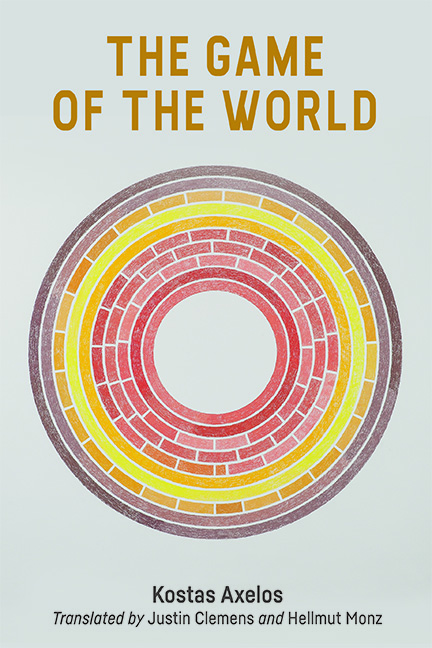Book contents
- Frontmatter
- Contents
- Translators’ Introduction
- Prelude
- Opening. The Great Powers and the Elementary Forces of the World
- I Logos. The Language and Thought of Man and the World
- II That. The Play of the Being in Becoming of the Fragmentary and Fragmented Totality of the Multidimensional and Open World
- III God-Problem
- IV Physis. The Cosmic World
- V The Human in the World
- VI World History
- VII The World of Poetry and Art
- VIII Being-Nothingness, Everything-Nothing, the Unworldly World
- IX The Game of the World
- Notes
- Analytical Table
IV - Physis. The Cosmic World
Published online by Cambridge University Press: 17 November 2023
- Frontmatter
- Contents
- Translators’ Introduction
- Prelude
- Opening. The Great Powers and the Elementary Forces of the World
- I Logos. The Language and Thought of Man and the World
- II That. The Play of the Being in Becoming of the Fragmentary and Fragmented Totality of the Multidimensional and Open World
- III God-Problem
- IV Physis. The Cosmic World
- V The Human in the World
- VI World History
- VII The World of Poetry and Art
- VIII Being-Nothingness, Everything-Nothing, the Unworldly World
- IX The Game of the World
- Notes
- Analytical Table
Summary
Can nature be founded?
The secret of physis is precisely what appears as birth, growth, blossoming, decline – natural.
The mythologies of nature and the mythological figures of the tamers of nature seem situated firmly behind us and in some way also: before us. It’s for us to decipher them – at the worn-out threshold of an age that claims to be ecumenical. For if what one designates under the name of the philosophy of history has become, little by little, relatively and very approximately, problematic and transparent – not thanks to relativism (in relation to what? to what absolute?), but thanks to the possibility of a multidimensional and polyscopic approach, and although we do not know how to pose the problem of the ‘sense’ of history – what was called the philosophy of nature remains enclosed in rigid representations or routes itself through non-figurative configurations towards an almost mute and acosmic approach, where all orientation is lacking.
How did nature manifest itself before the Greeks? If it was named, what name did it bear and how did it bear beings and things? For it is on the basis of the Greeks that it is physis, unveiling – and veiling – in and through the logos, logos as unveiling of physis. As foundation and horizon, physis however remains unelucidated, and the relationships between chaos and cosmos, being and non-being, everything and nothing, remain enigmatic. In the Hebraic Christian representation, nature is the creation against which we must struggle, opposing it and coming to terms with it, until the final end, apocalyptic (signifying the definitive catastrophe of the created sinner, when the seventh angel will empty its cup and a voice will cry: ‘It is done’) and redemptive (signifying the transfiguration of all, the appearance of the new heavens and the new earth). This representation is entangled in its difficulties and ambiguities. God pre-exists – cosmic and historical and human – time, but only appears with Creation. Creator and creation are created in what time? Does God create the matter and abysses from which everything has emerged? And what of the nihil, from which everything was drawn? Is creation the fall of God? Are we not in a ‘false’ or ‘falsified’ creation? With Modernity, nature becomes the alterity of thought, the problem to be solved, the x to be deciphered and transformed, the object of theoretical and practical activity, techno-scientific, of the industrious and collective human subject.
- Type
- Chapter
- Information
- The Game of the World , pp. 249 - 266Publisher: Edinburgh University PressPrint publication year: 2023



